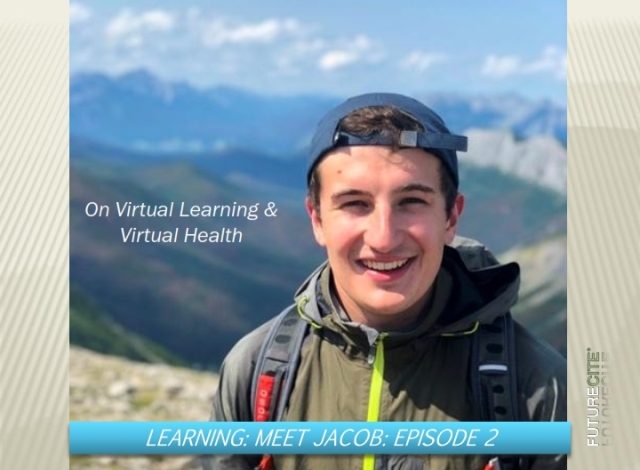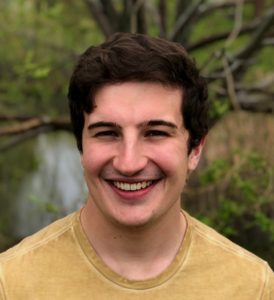
COVID 19 has changed how we live, from the accelerated adoption of technology for virtual learning and in virtual health.

In Episode 2, Jacob shares insights from a student’s perspectives on how technology has provided unforeseen attributes to learning, and from his personal perspective on virtual health as a patient – more awareness in self-managing his own health, and how it has changed from primarily physical checkups to the inclusion of the human side of inquiry to gain insights into a patient’s well being.
Based on what he has experienced with online class learning and the increased interactive learning with peers and professors, he sees the benefits, and hopes that it will continue in some form post COVID 19.
Through his learning of new knowledge and experiences during the past 3 years, Jacob now has broadened his perspectives on the possibilities and opportunities for his career goals. So, has his initial career goal of pediatric medicine shifted too? Jacob shares his thoughts in this Episode 2.
Stay tuned for Episode 3 to see what’s next for Jacob!
Virtual class learning can encourage students who may be too shy to ask questions to take on a new interest in class participation. The benefits of online learning can enable students to focus on interactive learning with class materials and their student peers (via chats) and work on their own timelines, rather than the past methods of formal regimens of memorization. Some students, may only ever show a ghost profile – preferring the traditional face to face interactions of human engagement. Learning environments and organizations that will evolve in the near future.
Virtual health provides benefits of safety for online consultations between patients and clinicians during COVID 19. It does however encourage patients to think about how best to communicate their symptoms – more so if remote diagnosis is not yet accessible for clinicians to do a remote diagnosis of patients’ conditions. As a result of COVID 19, society may see increased interest in virtual healthcare and patient driven care.
About Jacob Dunn

Jacob is currently entering his fourth year of a Bachelor’s degree in Neuroscience at the University of Alberta. He is engaged in laboratory research focused on chronic pain and Multiple Sclerosis through the Kerr & Plemel labs. Jacob’s healthcare experience as a child learning to live with chronic kidney disease has fueled his current volunteer work and future career goals. He is currently an active volunteer with several different Alberta Health Services’ councils in a variety of capacities, such as helping to establish the Mental Health and Addictions Youth Advisory Council and serving as patient co-chair of the Stollery Children’s Hospital Patient and Family Centred Care Council. Combining his personal experience and academic background, Jacob is planning to apply to medical school as he continues to work towards being a positive part of other patients’ clinical teams.




